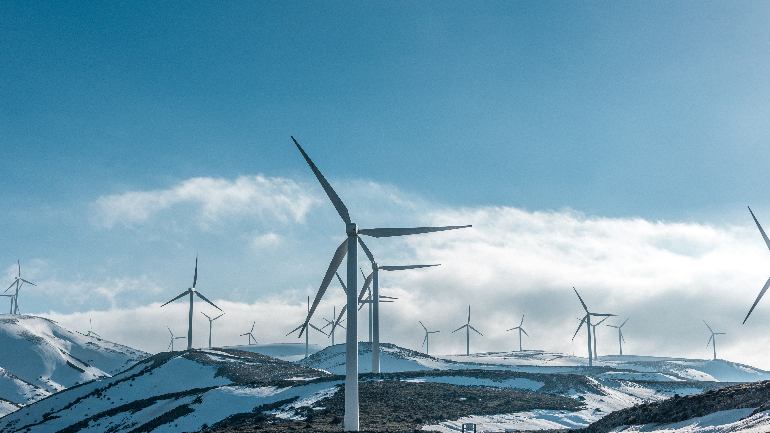
New Energy Systems
Kongsberg - Part time
Interested in developing new energy solutions of a low-carbon future? This course will develop an understanding of how the different technologies and existing solutions are interconnected and to what extent they are interdependent.
-
Closing dates: Expired
Study facts
-
Campus: Kongsberg -
Study level: Further education -
Progression of study: Part time -
Start up: Spring 2025 -
Teaching model: Session-based -
Credits: 0 or 7,5 -
Charge: NOK 20.000,-/25.000,- -
Closing dates: Expired -
Semesters: 1 -
Teaching Language: English
Dates
Dates for spring 2025: To be announced
Why study New Energy Systems?
We are going through a rapid transition in the direction of affordable, clean, and sustainable energy systems. This transition comes with great opportunities for new innovations, technology integration, and systemic changes to create trans-disciplinary solutions and new business opportunities.
The transition affects many parts of society. To secure a sustainable future we need new knowledge, competencies, and solutions in multiple areas faster than ever. The accelerating green shift brings changes to the way we need to fuel our cars, heat our homes, and power our industries in the coming decades. Sustainable development supports energy demands without a negative impact on the future. New technologies are already here and others will come soon. We need to reorganize our systems, businesses, and society to increase the speed of transition.
This course will provide the student with systems engineering techniques that enables us to connect the existing knowledge in holistic systems overviews. Those students having in-depth expertise also in complementary engineering or business disciplines will obtain the full benefit of the course.
What you will learn
You will learn how to approach energy systems from multidisciplinary viewpoints to create new ideas that generate future jobs across industries. We will apply conceptual modeling to real cases and develop roadmaps to create sustainable solutions and drive the required systems changes. Students are encouraged to bring their own cases.
Course content plan:
Day 1: Global Energy Demand, Consumption, and Future Outlook
- Energy systems across the world
- Earths energy balance
- Sources and Carriers
Day 2: Existing and New Technology
- Large scale energy production, distribution, and consumption
- Smaller scale systems including solar, wind, wave, tidal, geothermal
- Energy storage and carbon capture
Day 3: Infrastructure and the Public Opinion
- Power plants for generation of electricity and heat
- Industry, transportation, household, and agriculture applications
- Digitalization of energy systems
Day 4: Your Future Business
- Cost of energy and emissions, social and political awareness, business plan and funding
Day 5: Share and Communicate Your Solution
- Presentation of the solution developed during the course
Instruction
The courses are a mixture of lectures and work in groups. Master students and others taking courses for credit will work on a written assignment that is due 10 weeks after the end of the course. A completed course with an approved written assignment will give 7.5 study points.
Prices
The price for attending a course depends on whether you take the course for credit or not. To get credit for the course, you need to hand in a written assignment.
- Alternative 1: Attendance only kr. 20.000,-
- Alternative 2: Attendance and written assignment kr. 25.000,-
For alternative 2, the price also includes supervision and grading of the written assignment.
Registration
The registration deadline for each course is 2 weeks before the course starts.
We accept registrations also after the deadline, provided there are available seats. Each course has a limited number of seats, so please sign up early. We reserve the right to cancel courses with too low participation.
Course plan
A course plan will give you a description of the academic content of the course and your learning outcome. You will find reading lists and relevant information on how each course is taught.
Link to the latest published course plan
Admission requirements
A bachelor’s degree in engineering or exact sciences, or similar
A bachelor’s degree in natural science or technology provided that it contains at least 20 ECTS mathematics and/or statistics or physics
A cumulative grade point average of C or above
You must also fulfill the English requirements
The admission requirements are founded on the regulations regarding admission


